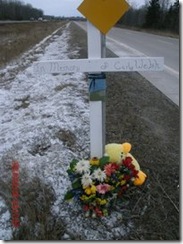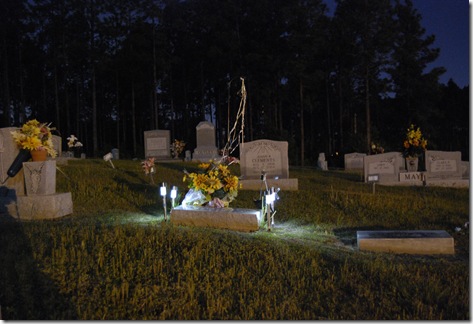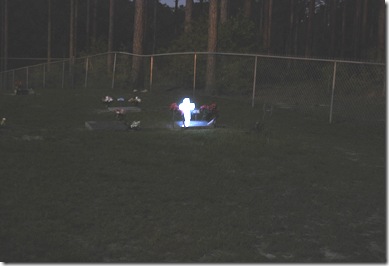My father used to say, “Son, there are only two things that are certain in this life: Death and taxes.” It took me several years from the first time I heard that saying to actually believe my father. When, at age 15, I studiously examined my very first pay stub I believed him about the taxes. When, at age 35, I looked at my cousin, Mike, laying in a casket in a funeral home, I knew that my dad was right about the death part, too.
Mike wasn’t the first family member that I knew to die. My father’s father, Smitty died when I was 25, but we weren’t very close and his funeral really didn’t bother me at all. I told my uncle that the funeral home was “as cold as a morgue.” He wasn’t amused. I paid my sister $5 to touch his face, and offered her $25 to kiss him (she declined.)
Mike, on the other hand, was the closest thing to a brother that I ever had. Together we were the only boys out of the 14 grandchildren on my mom’s side, and we lived, for a good part of my childhood, only a mile away from each other, and we used to get into all sorts of trouble on my grandfather’s farm. Here is a photo of the two of us with our uncle and grandfather (both named Reed):
Also pictured is Buddy, the possum of international fame.
When Mike died, we were all traumatized, especially his wife and three young children. The funeral was different from what I had expected. First, there were hundreds of Mike’s friends there, and although he had a traditional casket, his friends had covered it with motorsports stickers such as Champion, Vance and Hines, Kawasaki, etcetera. Mike was a tow truck driver, and along the two-hour trip from the church in Douglasville where the funeral services were held to the cemetery in Marietta there were tow trucks blocking traffic at every intersection. I feel bad for you if you needed a tow that day in Atlanta, because every wrecker in a 50 mile radius was there blocking traffic.
Mike’s wife got the needed permits to drive his casket on the back of his flat-bed wrecker. It was held down with bungee cords. Along the way, a car not involved with the funeral got tired of the hundred-plus procession of mourners, and tried to pass us on the shoulder. Some of Mike’s friends started throwing bottles and trash at the car as it passed, and the police, who witnessed the spectacle, and who doubtlessly knew Mike, pulled the interloper over and gave him a ticket. I later told my wife that it was certainly what Mike would have wanted: a fight at his funeral.
Later, at the grave site, my uncle Reed (pictured above with the ball cap on, holding Buddy) flew a ceremonial kite, which he said symbolized Mike’s spirit ascending to the Heavens. I was asked to dedicate the grave.
I share this with you to illustrate the ways that we cope with losing a loved one here in America. The ways are varied and diverse.
Over a year after Mike’s death, I was surprised when I got a Facebook friend invitation from him. At first I thought they had Facebook access on the Other Side, but later realized it was a way for his family to set up a sort of memorial to him.
You may have seen crosses by the side of the road, such as these:
I haven’t been able to figure out exactly why people do this. There is an entire website dedicated to mocking those who do. In my opinion, they are distracting, and in some cases have even caused accidents.
Lately I have seen a number of “night lights” placed on graves when passing cemeteries at night. Check this out:
I don’t understand this one at all. I doubt the dead are afraid of the dark.
The battery powered crosses are nice, too.
At least we don’t bring our dead to sporting events, as happened recently in Colombia.




